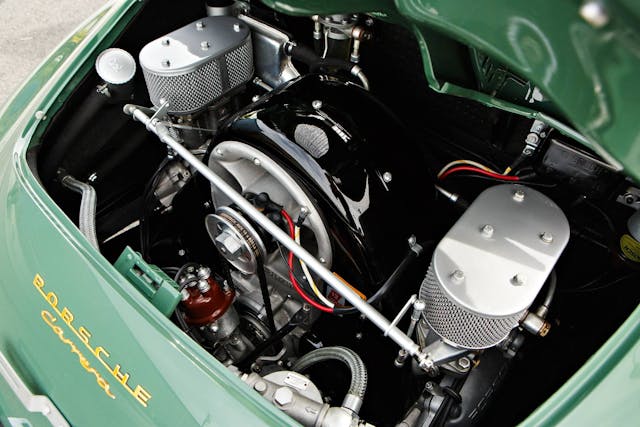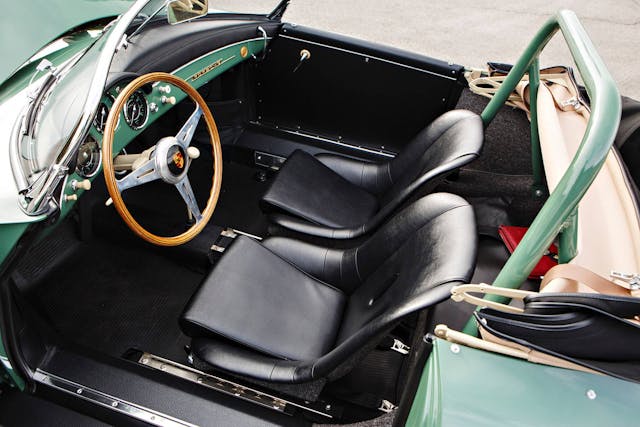Media | Articles
Seinfeld settles “fake” Porsche lawsuits, precise terms unclear
Six years after Gooding & Company sold a 1958 Porsche from Jerry Seinfeld’s collection to Fica Frio Limited, and questions of its authenticity triggered two 2019 lawsuits (one from Fica Frio against Seinfeld, and another from Seinfeld against the company from which he bought the car), both cases have finally been settled.
Seinfeld’s lawyers filed a document laying the groundwork with New York’s Southern District Court this Wednesday. Only once the court finalizes the documentation will we know the precise terms of the settlements.
The exact details of the lawsuits remain murky, as well, and those particulars may never be made public. Even when Fica Frio first filed suit back in February of 2019, demanding that Seinfeld refund its purchase, it never specified why it believed the Porsche to be inauthentic.
At the time, $1.54M final price drawn by this 1958 Porsche 356 A 1500 GS/GT Carrera Speedster was roughly condition-appropriate, according to the Hagerty Price Guide. Porsche’s first series-production road cars are desirable in almost any flavor, but, taken together, this car’s engine, construction, and paint seemed to set it apart as one-of-a-kind: Its four-cam, Type 692/0 four-cylinder engine is “extremely rare,” according to Gooding; Porsche only made 56 GS/GT Speedster examples with aluminum bodies, and this is the only one wearing Auratium Green paint.

The stakes were understandably high, and it’s possible human error played a role in the controversy. Porsche’s certification system relies mostly on matching the serial numbers of the engine and chassis, a task carried out by European Collectibles of Orange County, California, which restored the Speedster prior to its 2016 Gooding sale. There’s tends to be more ambiguity with this method than with Ferrari’s Red Book process, which performed done in-person by specific experts. That said, Fica Frio’s lawsuit didn’t provide explicit evidence for its claim that the car was inauthentic. Neither did Fica prove that the car was knowingly presented for sale in bad faith.
Marketplace
Buy and sell classics with confidence
Seinfeld had little reason to lie about the car, said Hagerty marketplace editor Colin Comer at the time:
“Knowing how Jerry buys cars, and the team of experts and inspectors he employs to make sure a purchase is legit, it’s hard to imagine he intentionally misrepresented a car. He wants the best, and he can afford the best, so there is no reason for him to get a car that’s at all questionable.”

Seinfeld and his team were hardly the only ones with reason (and resources) to verify the Porsche’s credentials. Gooding & Company is a respected authority with a vested interest in knowing the full story of the cars crossing its auction block, and other prospective buyers of this Speedster would have surely ordered pre-purchase inspections verifying its GS/GT status. How about European Collectibles, then?
The California shop has an outstanding reputation, but its good name didn’t stop Seinfeld from suing the outfit in 2019 over the same car. The comedian originally bought the Speedster from European Collectibles in 2013, and relied upon the certificate of authenticity issued by the shop when he consigned it to Gooding & Co. in 2016.
If the court finalizes the aforementioned settlements, it would seem that neither Fica’s suit against Seinfeld nor Seinfeld’s against European Collectibles will go to court. What it means for the future of the GS/GT Speedster is even more hazy.




